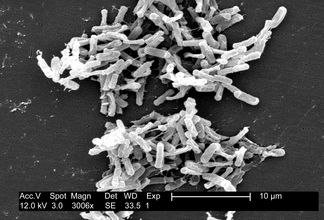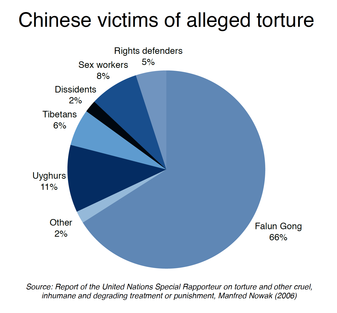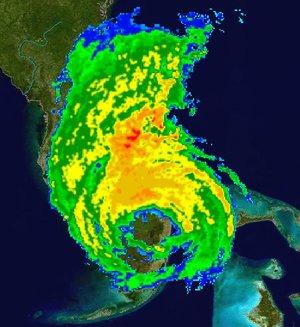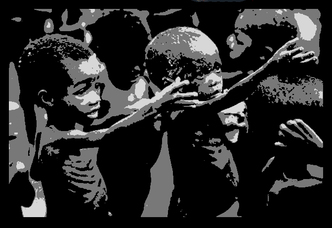 C. Difficile bacteria C. Difficile bacteria When you are admitted to hospital, perhaps the last thing that you may be thinking about is who used the bed before you. Some interesting research has been done by scientists out of Columbia Medical Center has shown a statistical increase in the chances of developing Clostridium difficile if the patient previous to you was using antibiotics. They did not have to have the infection. The team looked at over one hundred thousand pairs of patients assigned to beds. The former occupier was free of CDI while in the hospital and the second person was free for at least two days after being admitted. The first person had used antibiotics. The statistics showed that while the chances of developing CDI while occupying a bed that had been used by a person on antibiotics but free of CDI were low – less than 1% chance. If the previous person had not been using antibiotics, the chances were even lower, -- closer to half that. So while the chances of developing CDI from your hospital bed are really low, because the consequences can be great, the findings are important. The single greatest factor in developing this malady is the use of antibiotics. The spores that the bacterium forms are shed in the feces and can contaminate surfaces. Keen attention to hand washing and cleaning is necessary when a CDI infection is suspected. The potentially fatal bacterial infection, Clostridium difficile, is caused when normal gut bacteria mix gets out of balance. The usual reason for this imbalance is the use of antibiotics which may kill the ‘friendly’ bacteria leaving C. difficile to proliferate. This bacterium is very common, occurs in soil, and you may have encountered it when milk in your fridge goes rotten. The bacterium has the ability to form spores, tiny structures that encapsulate the organism until conditions are right for it to go forth and prosper. CDI infections sicken about half a million people in the US annually. People over the age of 65 are more likely to die from it than young. Out of an infection rate of half a million, about 30 000 died from complications. “One of nine patients over 65 with C difficile dies within 30 days of diagnosis," …."That's a frightening statistic." CIDRAP The organism is reported to have mutated in some cases and is now harder to treat. The judicious use of antibiotics is one tool in fighting this infection. While that is a start, it may be that restricting the use of antibiotics in the agricultural industry may have to be regulated more stringently than it is now. Further Reading: Medical News Today Mayo Clinic Center for Infectious Disease Research and Policy.
0 Comments
 The government in Hong Kong has passed a new law, scheduled to come into effect January 1st, 2017 that will place foreign NGOs under the supervision of police. The Overseas NGOs Domestic Activities Management Law. The law will allow the police to monitor the daily activities of foreign human rights groups as well as overseas aid agencies. The police will have a free hand in inserting themselves into the activities of NGOs. They will have the authority to enter offices, examine paper and computer records, bank accounts and to limit the amount of funds entering the country. As well, the police will have the authority to cancel any activity, revoke permission to remain, detain workers and blacklist organizations that they deem to be disruptive to the government in Beijing. In Mainland China, charitable and human rights groups can only exist at the government’s pleasure. To defy it risks imprisonment. The authorities in China mean business when they threaten imprisonment. During this week of awarding Nobel Prizes for excellence in various categories, thoughts may turn to Liu Xiabo who received the Peace Prize in 2010. He was not allowed to travel to Norway to accept his prize.He has spent the past four years in prison and has another seven to face for the crime of “inciting subversion”. He criticised the PRC government on its record of human rights. Liu Xiabo’s wife is currently being held in strict house arrest and is unable to confer with friends. She is allowed to visit her husband once a month. Human Rights Watch has published its World Report 2016 which summarizes the situation in China for 2015. HRW view of the prospect for human rights in that country is bleak. Ruled by the Chinese Communist Party (CCP) for more than six decades, China remains an authoritarian state, one that systematically curtails a wide range of fundamental human rights, including freedom of expression, association, assembly, and religion. HRW Canada’s prime minister recently paid a visit to China and among other issues an extradition treaty was broached. In late September, China’s prime minister visited Ottawa and it was expected that PM Trudeau and he would start preliminary talks. News of this has shocked and disappointed many Canadians given the present state of human rights in the PRC. Further reading: Radio Free Asia Who 2 Amnesty International Global News Human Rights Watch  The Caribbean country of Haiti was smashed with the powerful hurricane Matthew which flattened much of the country, destroying homes, downing trees and flooding what was left. The direct death toll has not been added up yet as rescue workers are having difficulty reaching some of the outlying areas. The death toll is currently hovering around 900. The survivors have no shelter, no water, no food. The health care people have no supplies, not even bandages. Now the people have been hit with cholera. The country was previously cholera free but when UN workers that were carriers of the disease came to help after the 2010 earthquake, they brought it with them. Cholera is a water borne disease caused by bacteria. It is spread by allowing fecal matter to enter the water supply. The flooding and mudslides have contaminated the water supplies. It can kill quickly by causing dysentery and dehydration. At last report 12 people were being treated for it. Without treatment, a healthy person can die within a day. The country has yet to recover from the earthquake that happened six years ago. At least two hundred thousand were killed and thousands more succumbed to cholera. Massive efforts to help the country recover have been stymied by Haiti’s politics. Little rebuilding has been done and billions in aid money have disappeared, leaving the ordinary people poorly off. "We already didn't have enough food, now we have lost our crops," Junot Clerveau told Al Jazeera. "We have lost our trees that give us mangoes and coconuts. I don't know how we're going to deal with this." A Jazeera The USA has stepped up its aid to the country, sending the USS Mesa Verde and 300 more military to augment the 250 personnel already there with nine helicopters. France has committed to send 60 aid workers and 32 tonnes of equipment including water purification units. Canada has sent its Disaster Assessment Team to “ensuring that a Canadian response to the hurricane is coordinated, evidence-based and tailored to the needs on the ground”. The initial pledge is for three million dollars. Pleas have been sent out to help fund the Red Cross efforts in the daunting task of feeding and sheltering those made homeless. Further reading: Al Jazeera Haiti Libre  Oct 2005 Hurricane Wilma over Florida Oct 2005 Hurricane Wilma over Florida Hurricane Matthew cut through Haiti leaving hundreds dead and many more homeless. For Haiti, it is the worst natural disaster since the massive earthquake leveled much of their infrastructure. Early estimates put the death toll at between 500 and 600. The storm has made it difficult for aid workers to help as the harbours have been damaged as well. Friday sees the storm now downgraded to a category 3 storm. One person died in Florida due to the storm preventing quick medical help. It is the first cat. 3 storm to hit Florida since 2005. As of mid-morning the eye of the hurricane was still offshore, but predicted to make landfall on its way north towards Georgia. If the worst of the rain and winds don’t hit Florida, storm surge is still expected to be a danger. Much of Florida is only metres above normal sea level. The low elevation combined with many sea side housing developments have emergency workers worried. A state of emergency for the state has been declared. South Carolina is also in the predicted path of the storm. The state governor has issued a mandatory evacuation order for a small town on Pawleys Island. In spite of the danger, many people ignore the evacuation orders and think they can ride out the danger. Police on the island are asking that those who choose to ignore the evacuation order to sign a waiver and also list their next of kin in case of injury or death. Hurricane frequency has not increased markedly in the past few years, but the frequency of higher category storms has. This is in keeping with predictions that more extreme weather is expected as the world’s oceans and atmosphere warm. Further reading: The New York Times CNN News2  Years of fighting the insurgents known as Boko Haram have left the north east of Nigeria in a shambles. While more recently, the Nigerian military has made some headway against the terrorist organization, the work is slow. Aside from the inability to raise crops due to the thousands of murders and abductions, over two and a half million people have fled the area seeking some measure of safety. In Borno State UNICEF is establishing nutrition clinics to try to keep children alive. Many are barely clinging to life and are already too weak to cry. The UNICEF spokesperson estimated that a quarter of a million children under five are severely malnourished and if aid is not given quickly, a fifth of them – 50 000 will die. At the same time, the Nigerian official in charge of emergency response, denies that anyone is malnourished. "This is too big for the Nigerian government to handle, too big for UNICEF to handle on its own, too massive a crisis — and the world needs to mobilize," said Porter. CBC Nigeria’s economy had crashed. The oil rich nation that only a few years ago was the top economy in Africa is unable to pay its civil servants. Food aid is sparse. Some agencies that are attempting to feed the people are finding that the supplies have been stolen by corrupt officials who then sell it at high prices. Unrest and insurgencies have popped up in the south as well as the north. War is expensive. The seven years that Boko Haram have been terrorizing the NE of Nigeria have been a drain on the economy even in affluent times. Not all Nigerians have suffered though. Corrupt people within the military have siphoned off massive amounts of money by creating “on paper only” soldiers and collecting the salaries for the non-existent personnel. One infamous battle between the Nigerian military and Boko Haram saw the soldiers run away leaving the village they were supposedly protecting. It was later revealed that they had been issued with one bullet each. Nigeria elected a new president two years ago. President Muhamamdu Buhari spoke October 1st on the occasion of the 56th anniversary of independence from Britain. He painted a rosy picture of the state and declared that Boko Haram had been defeated December 2015. He spoke of peace and safety. He did not mention the Chibok girls who are still missing nor did he mention the scores of people dying from lack of food. Further reading: CBC World News The Stream |
Barbara McPherson
Blogger, gardener, farmer. Working toward food security and a 30 foot
diet. Addicted to reading. Love this planet, especially my little corner
on Vancouver Island, Canada Archives
October 2016
Categories
All
|

